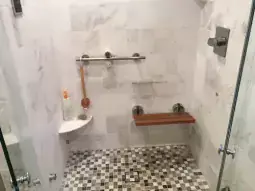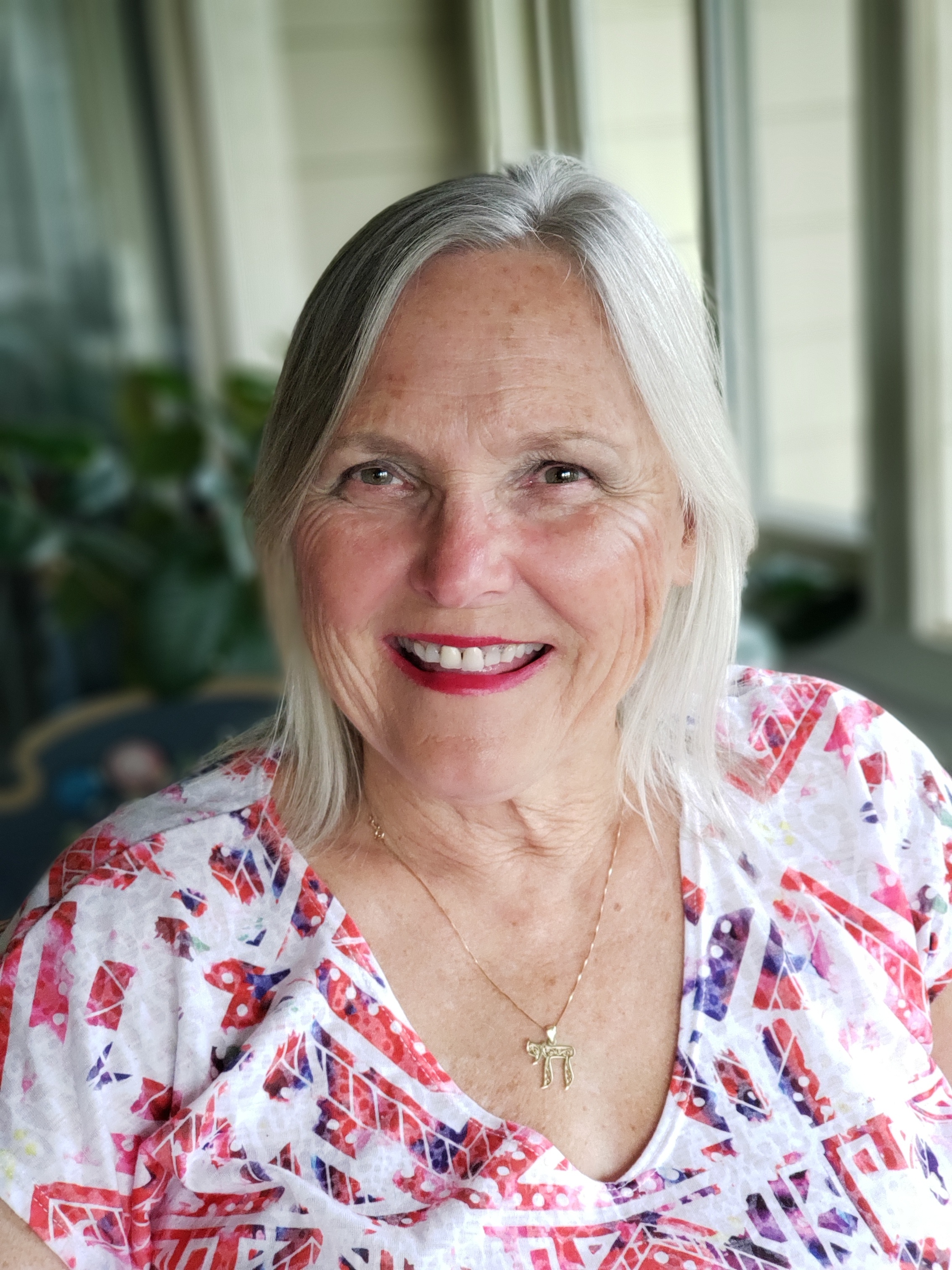Boomer Unchained: A Home That Changes With You
While I am positive most of us don’t like to face it, we are not as agile as we used to be.
Regularly practicing activities such as yoga, Thai Chi, Zumba, swimming, and power walking, definitely helps us keep in shape and better balanced. Watching what we eat helps, for sure. But at one point we need to seriously look at how safe our homes are, and how to make them safer. Sometimes, we come to this conclusion because we, a spouse, or a loved one is diagnosed with a progressive or chronic disease, such as COPD, balance disorders, or Parkinson’s, which will affect our ability to get around. Or, arthritis and past injuries are catching up with us to the point that we hold our breath going up and down stairs or climbing out of the shower.
Homes that work when our agility wanes
As many of my friends enter their 70s, the need has been arising for what is referred to as “accessible and assisted technologies.” The need for them is becoming so common, in fact, that you can even find that title in Delaware’s Guide to Services For Older Delawareans and Persons with Disabilities (call 800-223-9074 for your free copy).
I have to admit that I started thinking about the subject when I broke my ankle, but I have subsequently noticed that several of my friends have put grab bars in their showers and handrails on the front stairs. One friend told me that she installed the grab bar because, “I may need it one day.” She did admit that sometimes she feels a bit wobbly getting out of the bath and is fearful of slipping and falling. She reminded me of how I always hold onto the handrail when I walk down a flight of stairs. I started doing that when I broke an ankle the first time! That occurred in the Grand Canyon and is another story.
My neighbor around the corner just had a ramp built on her house. I haven’t spoken to her recently, but I know the front stairs were becoming a challenge. Another one of my neighbors, who power walks several miles every morning, told me he can no longer do stairs because of his arthritis pain.
Another friend (I am protecting the confidentiality of my sources since I am bordering on private health issues) and her husband bought an older home that had been remodeled with all kinds of “accessibility technologies,” including a private elevator and a lovely, tiled shower with double-glass doors.
Another one of my friends just gutted her bathroom and had a large and beautiful shower built much like the one I mentioned above. It has a tile floor even with the one in the rest of the room, double glass doors for easy access, a seat and hand-held sprayer, as well as the over-the-head blast. I asked her who did the work for her, thinking that you have to find a specialist. Though she told me she used One Call Services in Lewes, and was very satisfied, I have subsequently discovered that making homes more accessible is big business in Delaware’s coastal communities, to which I think half of the East Coast is retiring.

Designing a safer home
Two terms for this safety trend are: ‘Aging in Place,’ and ‘Universal Design.’
Aging in place is easy to understand. It describes the way we can stay at home as we get older, and not have to be sent off somewhere. Making a home safer is just one of the many ways to accomplish that goal. Universal design is an interesting term. Google it. Who would have thought it meant designing homes that are ‘accessible?’ There’s that word again.
I spoke with Tom Tipton, President of local developer Ocean Atlantic, to find out if any builders are designing homes especially for people who are getting older and who want to stay in their homes indefinitely. Surprise. Schell Brothers (a sister company) is designing options for the homes to be built in Truitt Homestead in Rehoboth Beach that speak directly to this issue. Schell also is offering some of the same options in homes still to be built in Independence, the over 55 community outside of Millsboro and along the rapidly developing Route 24 corridor. I don’t mean to promote one builder over another, but this builder has figured out the local market. Accessible showers, kitchens with specially designed islands, and entrances into the houses with NO stairs are options. As we know, ‘first floor living,’ and ‘first floor master bedrooms’ have been a thing for decades, but wheelchair accessible showers built with room for two people, I think, is relatively new.
Since I have been doing my own Google searches on this subject, I am now overwhelmed with web advertisements on chairlift systems I can install on my stairs, as well as elevators that can be retrofitted into my home. It is a thought down the way, but please let me know if you know how to get rid of those ads.
Anyway, I chatted with Jackie Sullivan over at Greater Lewes Community Village and she has many contacts with people who can help you retrofit your home. I spoke with one of them, physical therapist Kathryn Cieniewicz, who, as owner of Aging in Place Specialists, Inc., can advise you on ways to retrofit your home. She’ll help you find a contractor, too, and has information on how you might be able to get a tax credit for modifying your home. I don’t have all the details on the legislation so I’m not sure if it is passed. AARP may know something, too. You also can get all kinds of information from the state Aging 800-number I mentioned above. I am sure there are all kinds of opportunities for different income levels.
So, I have squirreled away some accessible information that I may need in the future, in a place hopefully I remember, and now I am going back to researching where to stay to take a hiking trip this fall in the Delaware Water Gap!

